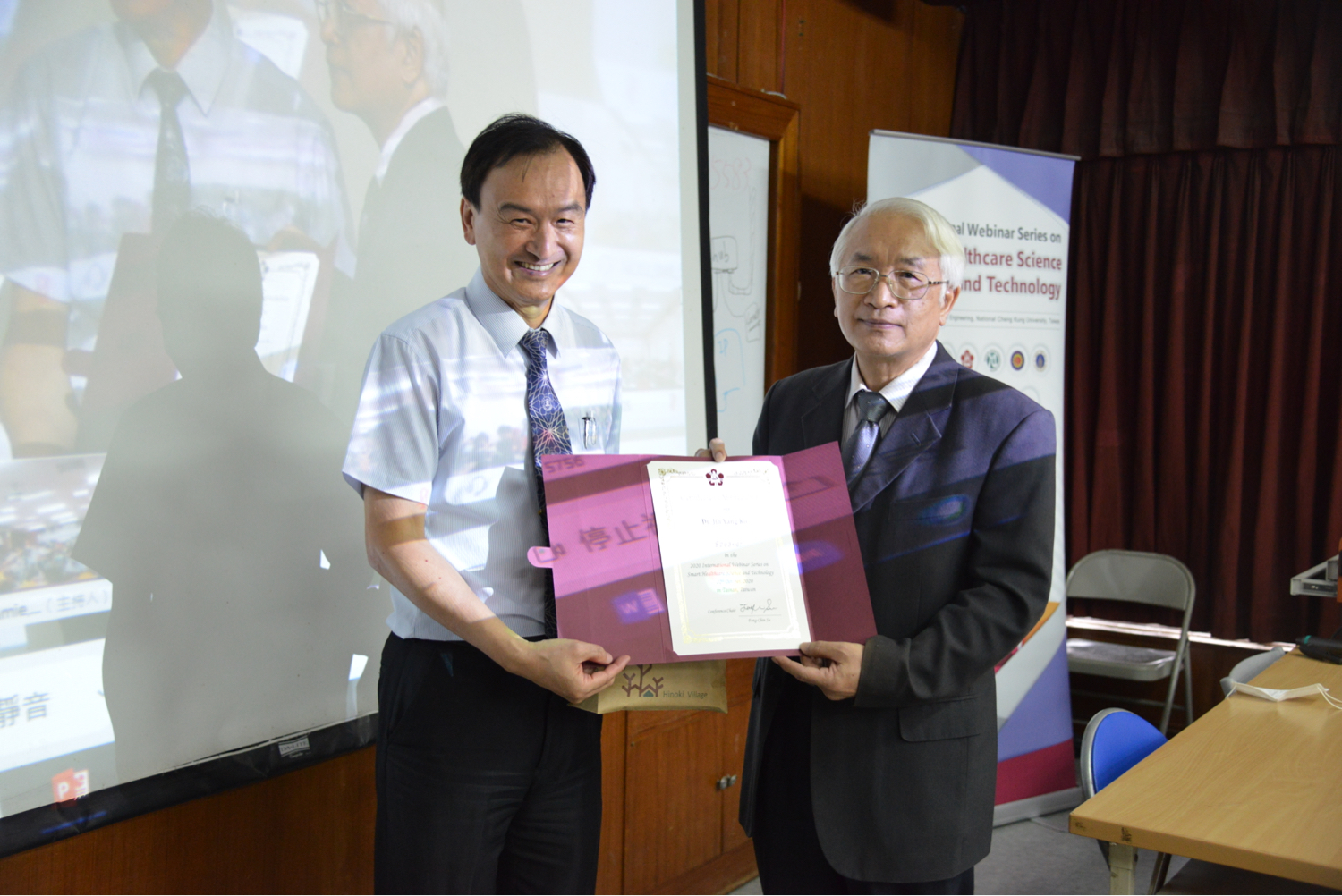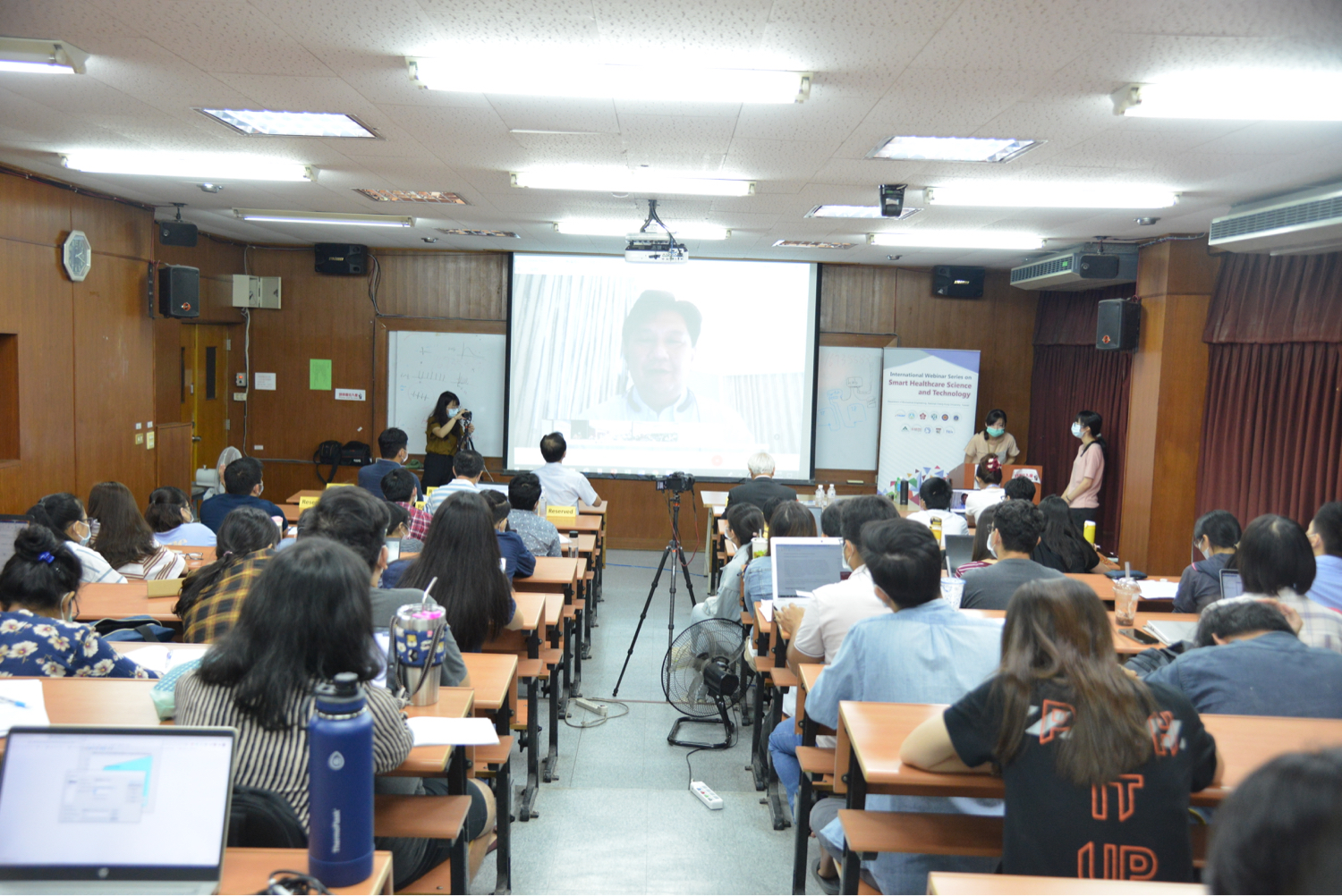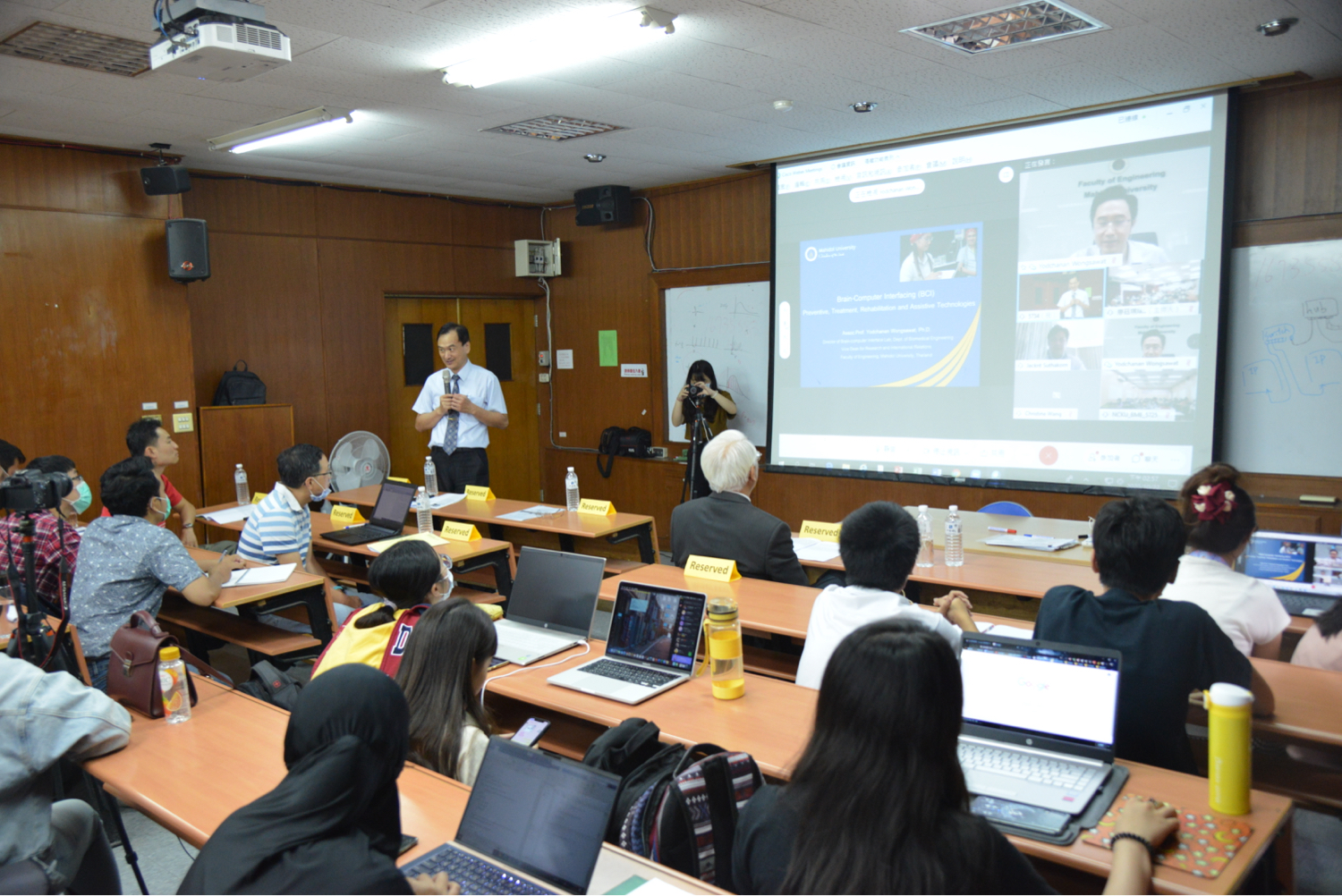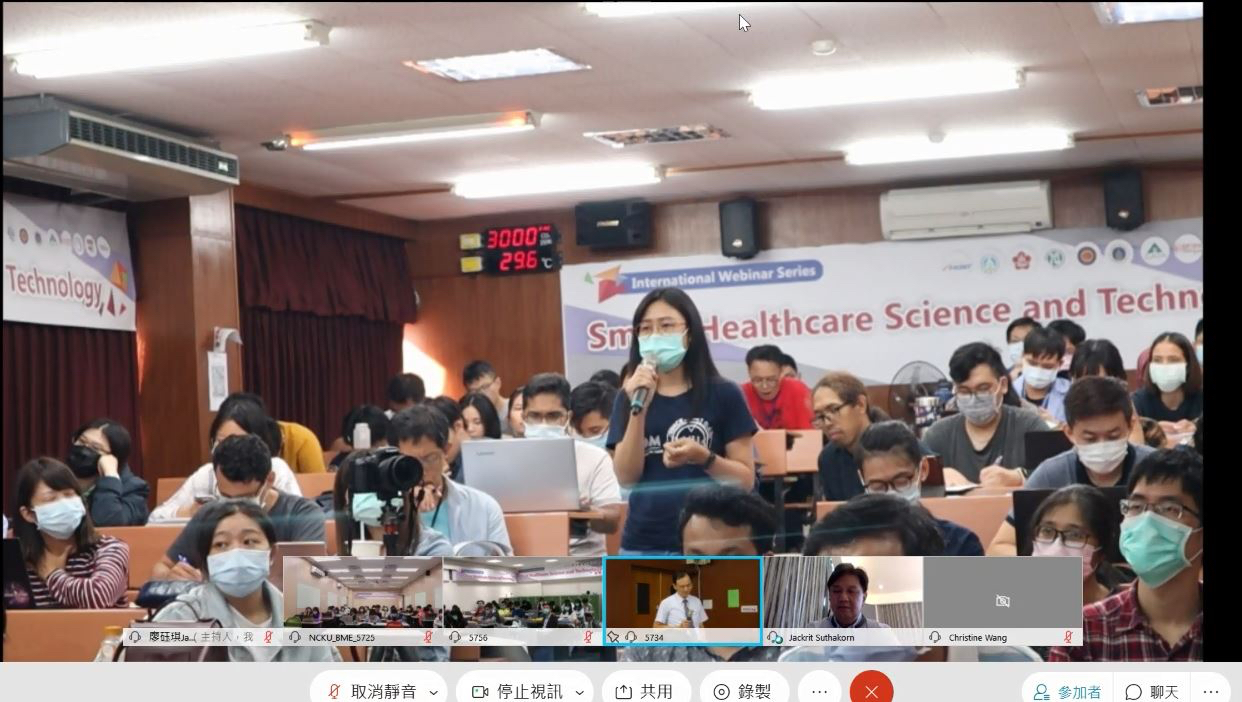Webinar | The Potential of Artificial Intelligence in Healthcare
Taiwan Center for Smart Healthcare Science and Technology in Thailand and Mahidol University co-organized “MU-NCKU International Webinar Series on Smart Healthcare Science and Technology.” During COVID-19 epidemic, it could make great use of technology to overcome the challenges of geographical and time constraints, for related experts and scholars in various fields could be invited to exchange and share the latest smart healthcare development.
On October 22, the webinar topic was “The Potential of Artificial Intelligence in Healthcare” and discuss the breakthrough development of artificial intelligence in healthcare industry, including medical robotics, brain-computer interface and so on. The webinar invited Taiwan-Thailand distinguished experts of smart healthcare as speakers. Dr. Jih-Yang Ko, MD, from Kaohsiung Chang Gung Memorial Hospital, an outstanding authority on Orthopedic, has shared how computer navigation applied to artificial joint replacement. With the aid of big data, the replacement surgery can be completed efficiently, it could reduce the risk of bleeding and infection and is relatively safe.

Pic 1 : Dr. Kuo shared computer navigation for artificial joint replacement.
Assoc. Prof. Jackrit Suthakorn, PhD, Dean of Faculty of Engineering from Mahidol University mentioned that the R&D inputs and development of medical robotics has grown rapidly no matter in global or Asia countries. He also introduced the medical robots developed with Siriraj Hospital, the affiliated hospital of Mahidol University, including those used in minimally invasive surgery, rehabilitation, telemedicine, drug transportation, emergency rescue and others. He hopes to work with more diversified partners and involved in related research to benefit the medical system.

Pic 2 : Dr. Jackrit Suthakorn medical robotics and computer-integrated surgical technologies developed in Thailand
Assoc. Prof. Yodchanan Wongsawat, PhD, Vice Dean for Research and International Relations, Faculty of Engineering from Mahidol University has participated in research of Brain-Computer Interface (BCI) for more than 10 years. He talked about the latest trends of BCI technology, which has expanded from brain activities analysis to brain-related diseases diagnostic. He also showed relevant application results of how technology empowered human ability and fulfill humanistic literacy. For example, the wheelchair user with lower limb disability can once again enjoy the cycling activities, attending international sport tournaments.

Pic 3 : Dr. Yodchanan Wongsawat shared latest trends of Brain-Computer Interface technology
More than 200 people attended the webinar, including NCKU students and professors, as well as experts and scholars from our New Southbound nation partner universities and institutions in Thailand, Myanmar, Vietnam, Malaysia, the Philippines, Singapore, Indonesia, and India. We look forward to establishing a cooperation network for common interests and challenges to improve the quality of medical care and human well-being in the Asia-Pacific region.

Pic 4 : Southeast Asia graduate student posed questions to online speaker during discussion session

